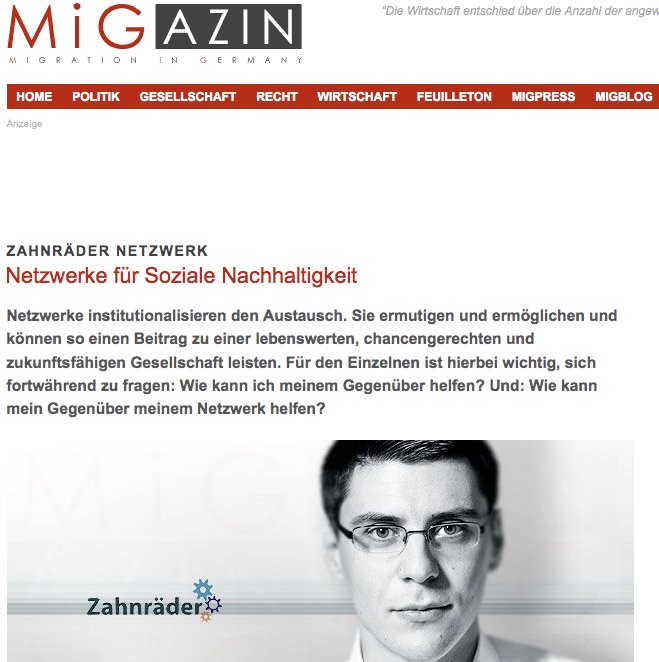I attended a seminar last weekend and spoke together with my wife about „Networking as a Changemaker“. A few thoughts on this in the October blogpost (four hours too early – off to Oxford tomorrow):
// The Micro-side
Networking is a multiplication formula which only works if it is pursued correctly. If you meet someone what do you think? What is your approach for a meeting? Quite a few books are written on this topic but I would like to suggest two points to ponder upon – easily to remember and thereby easily employable.
The first is two have the following three questions in mind: Me? You? We? Or: who am I? Who are you? Who are we? This helps to understand the setting and act accordingly.
And the second set of three questions: What can I do for you or your network? What can you do for my network? And only then lastly: what can you do for me? I believe in this culture of helping others. If this is really about the I – well, it seems that helping others makes me happy. But it also seems to be the right thing.
Btw1: This seems to me to be essentially a very ethical question about our approach to life. How do I treat others? Why do I connect to others? Do I simply focus on my interests or is there more to it than trying to maximize my gains. What am I waking up for? Why do I (inter-)act?
// The Macro-side
Institutionalized networking should encourage and enable networking. It should provide a frame or plattform for the micro-side. According to Podolny and Page (1998), a networked organization is based on trust and reciprocity while a hierarchical organization employs authority. It is “ask” versus “make”.
For Goffee and Jones (1996) a networked culture is based on high sociability and high solidarity. Sociability measures the “sincere friendliness among members of a community”, whereas solidarity measures “a community’s ability to pursue shared objectives quickly and effectively”. If you intend to increase sociability, you should promote the sharing of ideas, interests and emotions by recruiting compatible people, augment social interaction, reduce formality, limit hierarchical differences and act like a friend, setting the example for kindness. If you aim to increase solidarity, you should develop members’ awareness of competitors, establish a sense of urgency, stimulate the will to win and encourage commitment to corporate goals.
Btw2: Again, what an organization does to us and we to it, is a deeply philosophical question about how we approach the institutionalized “us”. Does the macro-side provide the right encouragement and enable the right interaction – done rightly? Organizations may end up measuring and incentivizing the bad? What if the essential is hidden from us? What, how and why do we in our groups, organizations and states encourage and enable certain ways of (inter-)action?
Changemakers are actually bettermakers. They try to do better through change as well as conservation. Bettermakers need the right approach to (inter-)action on the micro-side and an encouraging and enabling macro-side. Let us start yesterday.


